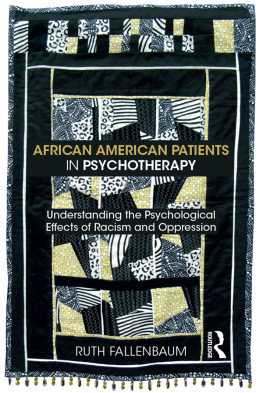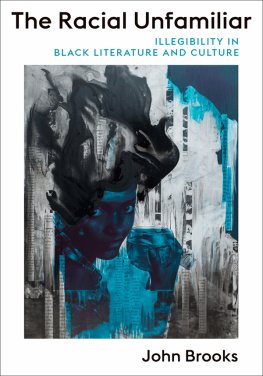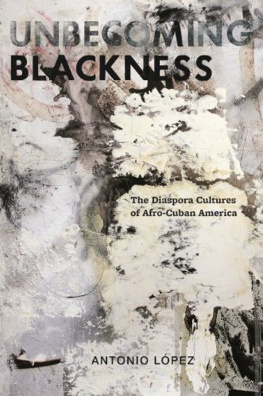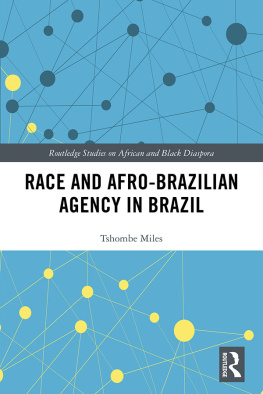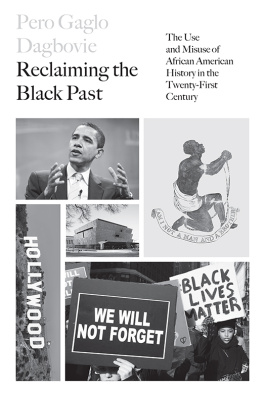Acknowledgments
In November 2018, I had the pleasure of moderating a panel at the American Studies Association conference on the topic of everyday utopias and black happiness. A common thread in our discussion was the relative absence of these narratives within academia and popular culturescholar Bianca Williams shared that people often experienced something akin to cognitive dissonance when she mentioned working on a book about black women and happiness; Tricia Hersey, artist, activist, and founder of The Nap Ministry, had to arrange her own photo shoot because there were so few stock photos of black people at rest and leisure. Though we were at a professional meeting, the room of a dozen or so people became a space of testimony and healing; by the end, I overheard Tricia taking addresses from attendees to send them a special tea made of chamomile and mugwort that would help them rest.
This book is my own contribution to highlighting spaces of pleasure and happiness in the lives of black folks. Selfishly, it was born out of my own desire to find a way through the ongoing grief I experienced around the deaths of my mother and grandmother, the deaths of black lives taken too soon, the social and political violence by which were subsumed on social media, and the daily indignities we endure. Everyone who had a hand in bringing this book to life has been a source of light for me as I endeavored to construct an archive of black joy.
I could not have asked for a better hand to guide this project than that of my editor, Dawn Durante. When I first approached her to discuss this project, Dawn immediately understood the value of this project even in its earliest (and roughest) stages. I deeply appreciate your timeliness, your professionalism, and your transparency throughout this process. Thank you for being a champion of this book, and for believing in me. You are the kind of editor with whom every writer hopes to work.
Also, thank you to the anonymous readers of this manuscript for the time you took to read this book in full and to offer sharp insight and feedback. Your thoughtful comments, questions, and intellectual breadth and wisdom made the revision process more difficult than I could have imagined and, consequently, made this book better than I could have envisioned.
Malcolm Gladwell once said that unless you have had the experience of someone fine-tuning your sentences, you really havent written. Thank you to Joshua Boydstun, Sarah Grey, and Katie Tweed for your keen eye and helpful suggestions. You have helped define for me what it means to be a writer.
This book simply would not be without the intellectual community of which I am privileged to be a part. A special thank you to Suzanne Bost, Elizabeth Fenton, Naomi Greyser, Jeffrey Glover, Habiba Ibrahim, and Krista Thompson. I am so grateful to you for reading portions of this book and offering comments that elevated it. I deeply appreciate the tough questions and the pushes to further clarify, complicate, and consider. This book is what it is because of your compassionate criticism and encouragement.
I would also like to thank the National Center for Faculty Development and Diversity (NCFDD) for instilling within me, at a very early stage in my career, the virtues of daily writing and building accountability structures for my writing practice. Without this discipline, writing this book without a sabbatical or research leave, while teaching a full course load and performing administrative duties, would have been nearly unachievable. Thank you to Julie Artis, Kimberly Blockett, Joy Gaston Gayles, Rachel McLaren, Anthony Ocampo, and Rosemarie Roberts for sharing your friendship and for normalizing daily rewards, taking weekends off, and prioritizing self-care. Thank you to the team at NCFDD, especially Kerry Ann Rockquemore, for allowing me so many wonderful opportunities to do the undervalued but important work of faculty development, and for creating the space for me to test new possibilities for myself, personally and professionally.
How fortunate I am to have found a special group of womenmy academic girlfriendswith whom I can converse about everything from social theory to social media. Our brunches, lunches, dinners, midday conversations/venting sessions/therapy, goal-setting, and random you got this text messages have kept me sane and grounded. Despite the reality of often being the only one in far too many professional environments, because of you I have never felt alone in this journey. Thank you, Michelle Boyd, Lorena Garcia, Helen Jun, and Mindi Thompson. I cannot imagine going through this academic life without your loving support.
A special thank you to those with whom Ive been in conversation over the past few years about scholarly and artistic life and work, and whose friendship and collegiality has been both invaluable and inspiring: Stephanie Batiste, Michelle Commander, Gavriel Cutipa-Zorn, Roderick Ferguson, Krista Franklin, Avery Gordon, Glenn Hendler, Tricia Hersey, Allyson Hobbs, Jennifer James, E. Patrick Johnson, Amanda Lewis, Aida Levy-Hussen, Dwight A. McBride, Jonathan Metzl, Koritha Mitchell, Natalie Moore, Walton Muyumba, Mark Anthony Neal, Oiyan Poon, Kyla Wazana Tompkins, Rhonda Wheatley, Amanda Williams, and Bianca Williams.
I would also like to thank my colleagues at Loyola University Chicago for their ongoing friendship and support: Twyla Blackmond-Larnell, Melissa Bradshaw, Pamela Caughie, David Chinitz, Sacha Coupet, Jack Cragwall, Helena Dagadu, Noni Gaylord-Harden, James Knapp, Priyanka Jacob, Paul Jay, Harveen Mann, Frederick Staidum, and Joyce Wexler. A special thank you to the Loyola University Chicago Office of Research Services for providing institutional support to assist with the publication of this manuscript, and to librarian extraordinaire, Niamh McGuighan, for offering research assistance and fair use expertise.
Put simply, family is everything. I could not ask for better in-laws than Byron and Willie Legardy and Jennifer and Charles Williams, who are always present to celebrate the small victories and huge accomplishments. I am grateful to my aunt, Romi, for reminding me to prioritize my health and well-being and for loving me since before I came into this world; my sister, Muneerah, whose friendship is one of my greatest giftsyour unconditional love and pragmatism are virtues from which I am fortunate to benefit; and my step/dad, Michael, for always being there, for offering your wisdom, and for showing me how to accept people as they are and love them anyway.


